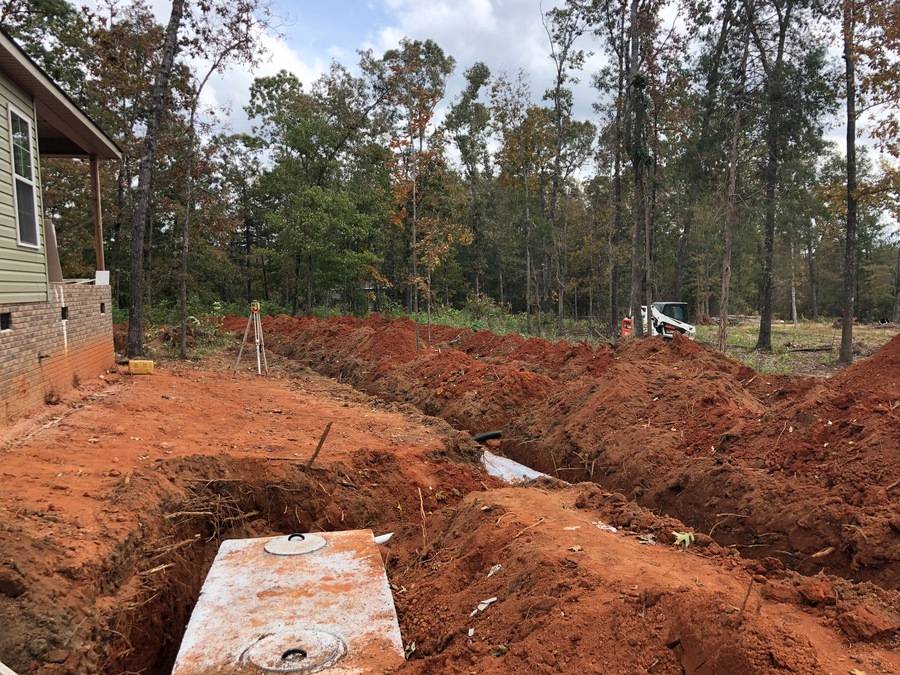Call This Wednesday to Get $25 OFF
Clean Solutions, Dirty Jobs – Done Right. Reliable. Responsive. Remarkable.
Call This Wednesday to Get $25 OFF
Clean Solutions, Dirty Jobs – Done Right. Reliable. Responsive. Remarkable.
Residential properties rely on a septic system for waste management, particularly those not connected to a municipal sewer line. If you want to install a septic unit or experiencing challenges with the current system, it may be time to hire a professional septic company. At Septic Connection, size is crucial if you want to maintain an efficient and functioning waste management unit.

Tank size depends on several factors, including state or local guidelines, tank material and placement, soil conditions, and regional geography. These factors affect system size and efficiency, whether you intend to use them for residential or commercial buildings. Many factors determine septic tank size, hence the need to consult a reputable septic company before deciding.
There are several types of septic tank systems, and the size requirements for your household may vary based on your system of choice. It can be challenging for an inexperienced DIYer to determine the correct type of system and size, leading to frequent damages and septic tank pumping calls. We recommend a suitable system type and size without compromising overall performance and durability. Standard systems include conventional gravity-fed anaerobic, pressure, aerobic, and recirculating gravel filter systems.
Another effective way to find out the correct tank size is to check with local government regulations. The rules may vary from one place to another, since water features and soil geographies are different in every state. This is the reasons you should check with local authorities to find out the right tank size and preferred installation location. A trusted septic tank pumping service ensures everything complies with set laws, preventing legal infringements and subsequent penalties.
The septic system is an onsite waste treatment facility, and it is incredibly reliable. However, the system is only as effective…
Imagine flushing your toilet and then suddenly realizing that your backyard has turned into a swampy mess. This unpleasant experience is…
Soil testing is a critical step in various construction and environmental projects. It provides essential information about the ground conditions, which…
Grease traps are remarkable tools that help keep your establishment clean and free from bad odors. Septic Connection has a…
If you have just moved into a new home or property that relies on a septic system for waste and wastewater…
The soil beneath your property is critical in septic tank size and effectiveness. This is related to the previous point, as local governments oversee septic system installations. To determine the suitability of your premises for a septic tank, a septic company must assess the proposed installation site to conduct viability tests. Soil percolation evaluation is a standard test conducted to determine the suitability of ground geology and its ability to handle and filter effluent. We leverage state-of-the-art equipment to enhance the quality of our tests, ensuring you invest in the right tank size and type.
Last, the average volume of effluent produced for your system to handle is essential when determining the right tank size. The last thing you want is a smaller unit that requires frequent septic tank pumping and repairs. We have extensive industry knowledge and expertise, which allows us to calculate and approximate these values for commercial and residential facilities. Most government authorities recommend smaller units for residential use, but the number of rooms and occupants should be considered before installation.
These are critical factors to help you choose the ideal septic tank size for your building. Contact us at Septic Connection and schedule an appointment with our experts. We provide top-quality services without breaking the bank.
When septic problems start, many homeowners look for quick and inexpensive solutions. Online videos, store-bought additives, and advice from well-meaning neighbors can make do-it-yourself septic fixes seem appealing. Unfortunately, septic…
Read moreA septic system is one of the most important—and most overlooked—components of a home. It manages wastewater quietly in the background, so many homeowners assume everything is fine until a…
Read more